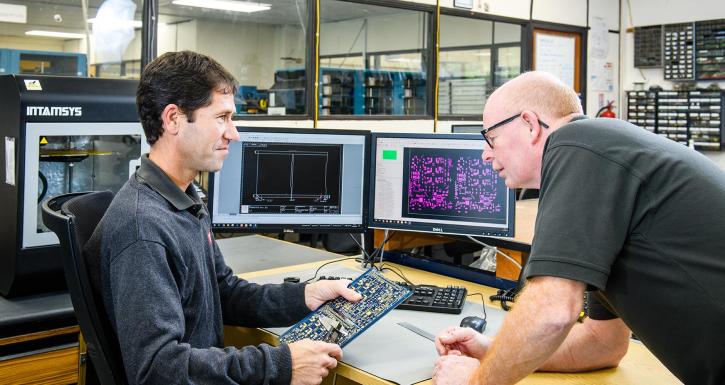4 questions to ask when outsourcing electronics manufacturing
5th March 2020
There is an old saying: ‘marry in haste and repent at leisure’ and when it comes to sourcing a business supplier, companies would do well to follow this advice! So, for those looking to outsource some or all of their electronic manufacturing, how can the right partner be chosen for a rosy and profitable future?
Here are four questions to ask any potential partner before popping the question:
1. Do you have extensive experience in contract electronic manufacturing (CEM)?
It is sometimes hard to see the wood for the trees when it comes to picking a good supplier, however, a key thing to consider is the level of experience that they have of producing high quality, consistent electronics-based parts or products. Are they able to keep customers for the long-term and what do those customers say about them?
Also, how do they manage the three factors of price, delivery and quality? After all, it is no good choosing on price alone, as factors such as service and flexibility need to be taken into account. What is the supplier’s delivery promise and have they kept it? Ask to talk to one of their existing customers to see if what they actually say on their website rings true in reality.
2. Have you invested in the latest technologies and equipment?
Any CEM that is interested in keeping their customers’ happy and delivering a cost-effective, high-quality service will have invested in ongoing and advanced manufacturing and testing technologies. If they say that they offer ‘an unrivalled CEM service’ (as Offshore Electronics says) - then challenge the claims and ask about their production capabilities, the in-house expertise that is controlling the process and what equipment is being used. If the company cannot substantiate this claim, then they have no right to make it.
Other questions to consider asking are:
- Does the CEM supplier have a continuous investment policy in place?
- What was the latest piece of equipment purchased?
- What are their printing capabilities for their 3D printing equipment, for example?
3. Do you have a new product introduction process in place?
A new product introduction (NPI) process helps OEMs and manufacturers of electronic products drive down production costs, improve quality and reduce time to market. It requires an experienced NPI team at the contract electronics manufacturers to put it in place, however. With an experienced team and an NPI in place, lead-times can be kept as short as possible, product over-engineering avoided and component choice optimised.
4. How comprehensive is your product testing strategy?
You can’t guarantee the quality of a product without putting it to the test. When done correctly, testing not only ensures a product is in full working order, but that it that saves you time and money in the longer-term. If the CEM’s testing strategy is inadequate, there is a risk that the end products will be of inferior quality and trigger expensive recalls or refund requests.
As no single testing system for PCBAs meets the requirements of every manufacturing run, you will need a CEM who can show that they have a strategy in place for determining the most efficient and cost-effective method of validating and testing their PCBAs to required specifications.
Ultimately, choosing a CEM supplier is a blend of quantitative and qualitative measures, but any CEM that can pass these four questions with flying colours is one that you should consider for a possible marriage proposal!

